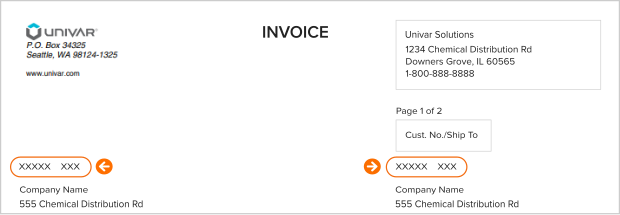We’re here to provide you with more information or help answer any questions you might have. Send us a note and we’ll get back to you as soon as possible.


Face oil shoppers are looking for reliable and responsive skin health products. Consumers seek targeted, efficacious, and aesthetic solutions to suit their skin type and tackle any problem areas or ailments they have.
Brands and formulators are developing facial oil products that boost home-based beauty regimes in new, exciting, and customized ways to reflect specific skincare users’ needs. Global face oil consumers enjoy innovative formulas, ingredients, and information that reflect their skin types, needs, and concerns.
Transparent ingredient lists and clear claims are vital. Consumers select their skin solutions using knowledge-based criteria. Increasingly, they understand how their habits, climate, and lifestyle factors irritate or inflame particular skin conditions and ailments.
In this article, we’ll explore everything you need to know to formulate facial oil products, including their benefits, the big beauty trends transforming the face oil scene in 2022, and the best face oil products for each skin type.
Benefits of Using Facial Oil Products
Whether you’re opting for an organic formula or an essential oil-based product, face oils offer plenty of advantages for skin health. Let’s take a look at some of the benefits of facial oil products:
- They boost skin hydration
- They protect against environmental damage
- They enhance the skin’s smoothness
- They promote improved self-esteem and confidence
- They provide better skin elasticity
- They offer anti-aging benefits due to improved moisture retention
- They increase the rate of cell turnover to improve skin brightness


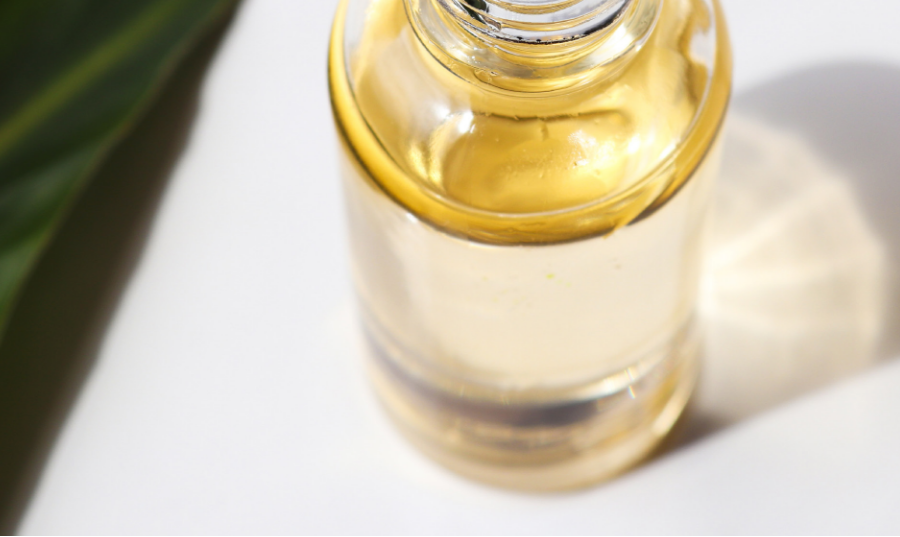

1. Vegan & Cruelty-Free Face Oils
Face oils are one of the most effective and gentle ways to moisturize skin. They are perfect for all skin types, including sensitive, irritated, combination and oily skin. Facial oil formulations can be formulated with gentle-to-the-skin ingredients and concentrations for sensitive and/or irritated skin. Lightweight textures are also designed to provide combination or oily skin consumers with skincare benefits that don’t leave a greasy, heavy or thick consistency on their skin.
Eco-minded skincare shoppers actively look for facial oil products that put animals and the environment at the very heart of their missions, manufacturing, and marketing. Beauty aficionados want to know they’re not compromising their ethics and global-minded values when selecting and buying their favorite formulations.
Shoppers look for products that purposefully avoid testing on animals and communicate this stance. Unsurprisingly, we see increasing numbers of vegan ingredients and cruelty-free face oils available today.
2. CBD-Infused Face Oils
Cannabidiol (CBD) has disrupted the beauty industry, garnering attention and strong appeal from shoppers looking for trusted products that focus on supporting health and wellbeing. And face oils are no exception. Infused face oils are becoming more and more popular. A quick Google search for “CBD face oil” results in over 49 million hits!
Some face oils are made with a blend of CBD and other essential oils, while others are 100% CBD. This active ingredient is recognized for its anti-inflammatory and antioxidant properties, making it highly prevalent in skincare formulations.
Face oil buyers value clear and credible information. Before purchasing a CBD face oil, shoppers will increasingly read its ingredients list and check for any potential allergens or indications that it’s not recommended for their specific skin type or concern.
3. “Skinmalism”
“Skinmalism”, or skin minimalism, is a hot trend taking over the beauty industry. We all know the famous saying “less is more”—buying less, wearing less, and using less—and now it’s hit skincare in a big way.
It’s about simplicity rather than the conventional belief that more is always better. And face oils are the perfect products to meet our need for clear, stripped-back formulations for the skin that are packed with essential ingredients. Face oils, after all, provide our skin with a vast array of feel-good and look-good qualities. Formulas reflect consumers’ searches for multi-protective benefits such as hydration, brightening, cleansing, and improved skin tone.


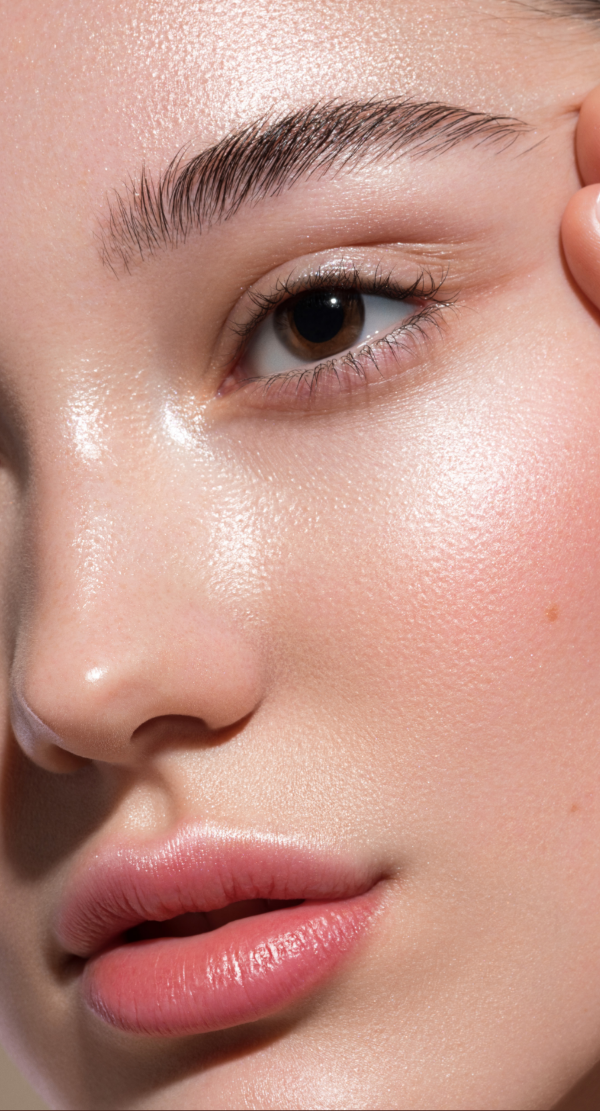

Oily Skin
Oily skin is often thought of as visibly oily, with larger pores. People with oily skin may also find it hard (if not impossible) to ease the amount of liquid on their skin. Sebaceous glands are located under the skin’s surface and produce an oily substance called sebum. When too much sebum is created, the skin becomes oily.
Sebum coats the skin and hair, providing lubrication and protection. Although sebum has some beneficial properties, excessive sebum production can lead to oily skin, resulting in clogged pores and acne. Genetics, hormone changes, and even stress can increase sebum production.
Facial oil products formulated specifically for oily skin help to manage and balance the skin’s sebum production to lower the amount of oil it contains.
Jojoba oil is ideal for oily skin as it helps to control shine by breaking down and dissolving sebum. Grapeseed oil is another great option in formulations for incredibly oily skin as it’s a natural astringent and supports the skin’s sebum by mattifying the skin.
Best Face Oils for Oily Skin
- Good Skin Face Oil by Discipline Skincare. $30.00. This product is designed for oily skin experiencing hormonal breakouts. It contains turmeric and tea tree in a balancing base of grapeseed oil.
- Biossance Squalane + Tea Tree Balancing Oil by Biossance. $32.00. This vegan face oil contains 100% squalane oil. It strives to promote microbiome diversity (the variety of microorganisms that exist on the body’s largest organ) to create healthier-looking skin. The oil offers moisture that is biologically identical (as it has the same molecular structure) to that found in human skin to provide a weightless and quick-to-absorb formulation that helps to retain moisture and hydrate.
- Balance & Restore Luxury Face Oil by Beauty By Earth. $29.99. This cruelty-free product for oily skin seeks to nourish and soothe. This facial oil contains jojoba seed oil, olive leaf extract, argan oil, rosehip seed extract, and essential oils. It has sea buckthorn to hydrate the skin and calendula extract to stimulate new skin cell formation.
- U.F.O. Ultra-Clarifying Face Oil by Sunday Riley. $40.00. Formulated to help prevent breakouts, this facial oil for oily skin contains a host of nourishing, antibacterial and moisturizing ingredients, including 1.5% salicylic acid, milk thistle, cumin, tea tree oil, hexylresorcinol, and licorice.
Sensitive Skin
Sensitive skin can be described as skin that is prone to irritation and rashes. Skin disorders such as acne, rosacea, and eczema can all fall under the sensitive skin umbrella.
When formulating a face oil for sensitive skin, it’s important to design with delicate skin in mind so that it does not cause skin irritation. Sensitive skin beauty users need a face oil that has been specifically formulated to protect the skin barrier in a warm and wholesome hug that calms and cares for the skin.
Facial oils for sensitive skin often avoid the inclusion of certain essential oils such as peppermint and lavender to prevent irritation and skin flare-ups. Therefore, these formulations tend to have fewer ingredients and so appeal to skincare shoppers embracing skinmalism.
Moringa oil is a common ingredient in sensitive skin formulations, thanks to its antioxidants, fatty acids, and anti-inflammatory properties. It’s also a lightweight ingredient with moisturization properties. Aloe vera oil is another popular choice as it’s packed with anti-inflammatories and antioxidants.
Best Face Oils for Sensitive Skin
- Jojoba Oil by Viva Naturals. $12.95. Hailed as a multipurpose moisturizer, this certified organic and cold-pressed facial oil is non-greasy and fast-absorbing.
- Facial Recovery Oil by Éminence Organic Skin Care. $76.00. This facial oil has been produced with herbs and oils to nourish, soothe and renew sensitive skin. The brand states its formulation contains clary sage oil to provide calming benefits and balance oil production, olive oil to hydrate, sage-leaf extract to rejuvenate, and ylang-ylang to cleanse.
- Rosehip Bioregenerate by Pai Skincare. $32.00. This product is designed for delicate skin with zero essential oils in its formulation. It contains oil pressed from both the fruit and seeds of the rosehip plant, vitamin E, and antimicrobial rosemary leaf.
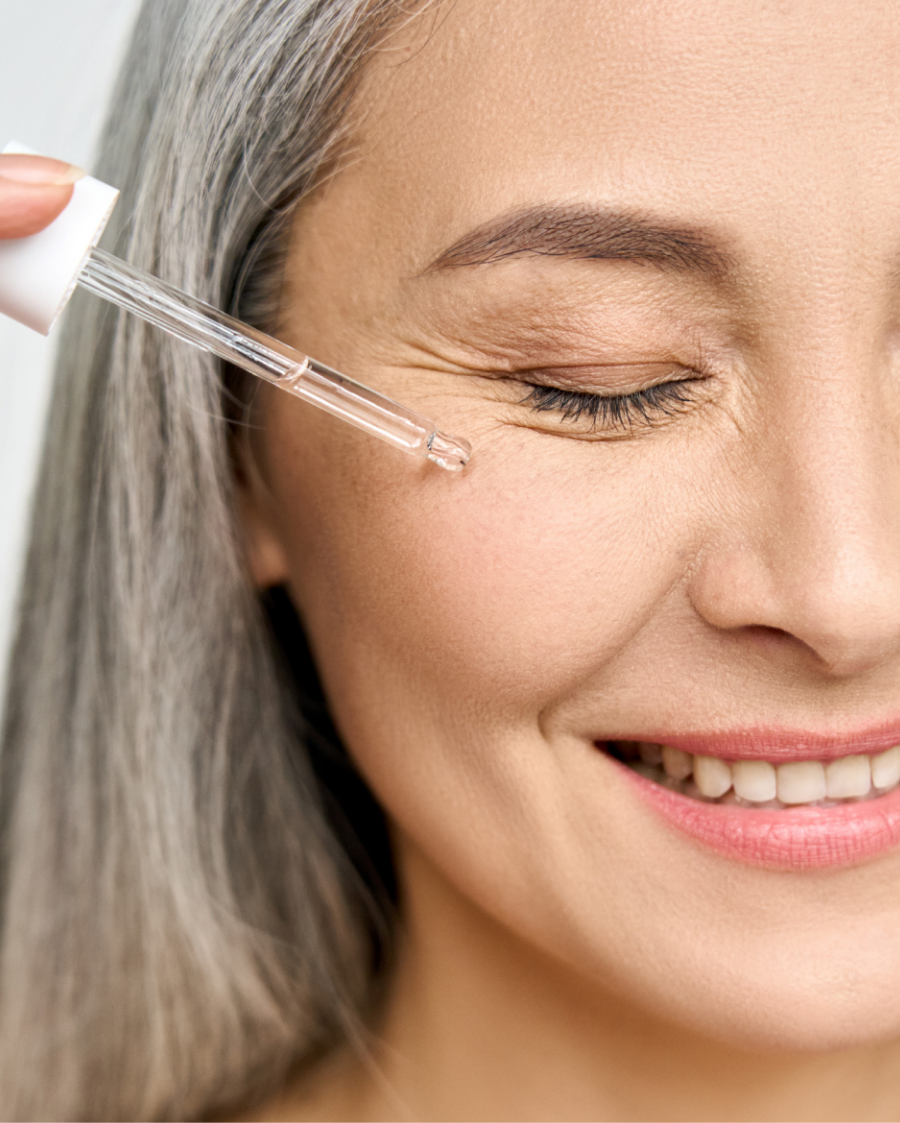

Mature Skin
As the skin matures, it displays visible signs of aging—namely, wrinkles and fine lines. Mature skin is also characterized by skin that is thinner and less hydrated. Consumers can also experience age spots and a loss of volume due to lower levels of elastic tissue that result in sagging skin.
When formulating a facial oil for mature skin, it’s important to consider an anti-aging oil. This will help promote cellular turnover, encourage collagen production, and work to reverse damage caused by impacts to the skin like post-operative scars, acne scars, sunburn, and skin burns. For mature skin, consider formulating with ingredients that have antioxidant and anti-inflammatory benefits.
Best Face Oils for Mature Skin
- Cell Repair Night Oil by Aurelia London. $50.00 for 30 ml. Drawing on the vegan skincare trend, this natural face oil contains plant and nut oils rich in omega fatty acids and essential oils. Together, they aim to retain hydration and soften the skin’s surface while offering sensorial appeal.
- Retinoic Nutrient Face Oil by Tata Harper. $150.00. This natural retinol-powered face oil aims to minimize the appearance of wrinkles and target all signs of aging by delivering a natural form of retinoic acid from vitamin A.
- Isdinceutics Melatonik by ISDIN. $165.00. This facial oil aims to support skin recovery during the night and help it to fight against oxidative stress (the imbalance between free radicals and antioxidants that can result in skin cell and tissue damage) produced during the next day. This product strives to stimulate the skin’s natural antioxidant defenses to repair environmental stress and damage from the previous day.
Irritated Skin
Irritated skin is characterized by skin that is inflamed or rash-inducing. Beauty shoppers with this skin type can suffer from acne, psoriasis, eczema, and rosacea. Inflamed and dry skin overproduces sebum, resulting in pimples, spots, and blackheads. Acne-safe face oils for irritated skin are designed to nourish the skin to leave it calm and comfortable.
Antibacterial and anti-inflammatory ingredients offer various benefits for irritated skin as they can decrease redness, provide soothing properties to reduce irritation and inflammation, and ease the appearance of dry skin.
Pomegranate oil is a naturally antibacterial and anti-inflammatory ingredient, so it’s a popular choice in formulations for inflamed skin prone to breakouts. It’s also very lightweight, so the skin won’t feel like it has a greasy film-like texture. Rosehip oil is another popular choice for treating irritated skin as its fatty acid content hydrates skin without clogging pores and helps to fade acne scars and lower redness.
Best Face Oils for Irritated Skin
- Nourishing CBD Face Oil by CBII. $40.00. This product has been formulated for stressed-out and irritated skin that needs redness soothing and facial hydration. It contains a low dose of cannabidiol in a base of jojoba, macadamia, and hemp. This cruelty-free plant-based facial hydrator includes raw, cold-pressed hemp seed oil, 200mg CBD, and active botanicals to help retain moisture and soften the skin.
- Attuning Face Potion by Frigg. $60.00. This vegan formulation strives to smooth rough texture, fade hyperpigmentation, balance oil production, calm redness, and plump fine lines. It contains cannabinoids, including Broad Spectrum CBD (300mg) and CBG (100mg). The formulation also contains sea buckthorn oil and nourishing botanical oils, designed to strengthen the skin barrier while boosting collagen levels.
- Midnight Recovery Concentrate by Kiehls. $49.00 for 30 ml. A night serum for the face, the product is designed to regenerate the skin. It features botanical and essential oils, including lavender and evening primrose oil. The oils help to restore the skin during the night by repairing it and stimulating cell renewal, when the skin is more permeable. The formulation also aims to smooth and firm the skin, counteract dehydration, and restore the appearance of tired skin to leave it soft and hydrated.
Dry Skin
Dry skin affects almost everyone by the time they reach 60. It often appears thin and tight as it lacks oil and moisture and is generally less flexible than oilier or moisturized-looking skin. Consumers with dry skin may experience cracked skin, cuticle cracking, and a loss of elasticity.
Consumers with drier skin often opt for formulas that use a facial oil high in oleic acid to provide moisturization and hydration. Oleic acid is a fatty acid that helps to improve the skin’s condition, holds moisture, and lowers irritation caused by dryness.
Almond oil is known for its ability to hydrate and its gentle nature. It, therefore, provides an ideal ingredient for face oil users with very dry skin, eczema, or dermatitis. Marula oil can absorb into the skin within a few minutes of massaging, and its fatty acid content helps to calm the skin.
Best Face Oils for Dry Skin
- Black Rose Precious Face Oil by Sisley Paris. $208.00. This facial oil for dry skin contains a blend of plant-based ingredients designed to nourish, protect, replenish, and rejuvenate. It contains squalene and algae extracts to soften dry patches as well as rose and plum to lock in moisture.
- Honey Grail by Farmacy Beauty. $48.00. An antioxidant-based facial oil, this formulation features buckwheat honey and sea buckthorn oil to provide a glowy complexion directly after application, as well as omegas to protect the skin against free-radical damage. It also contains flower oils like hibiscus, rosehip, and sunflower to nourish and provide a non-greasy texture.
- Virgin Marula Luxury Face Oil by Drunk Elephant. $68.00 for 30 ml. Aimed at dry skin, this product uses 100% unrefined marula oil, promoting its rich antioxidants and fatty acid profile to moisturize, nourish, and balance skin.
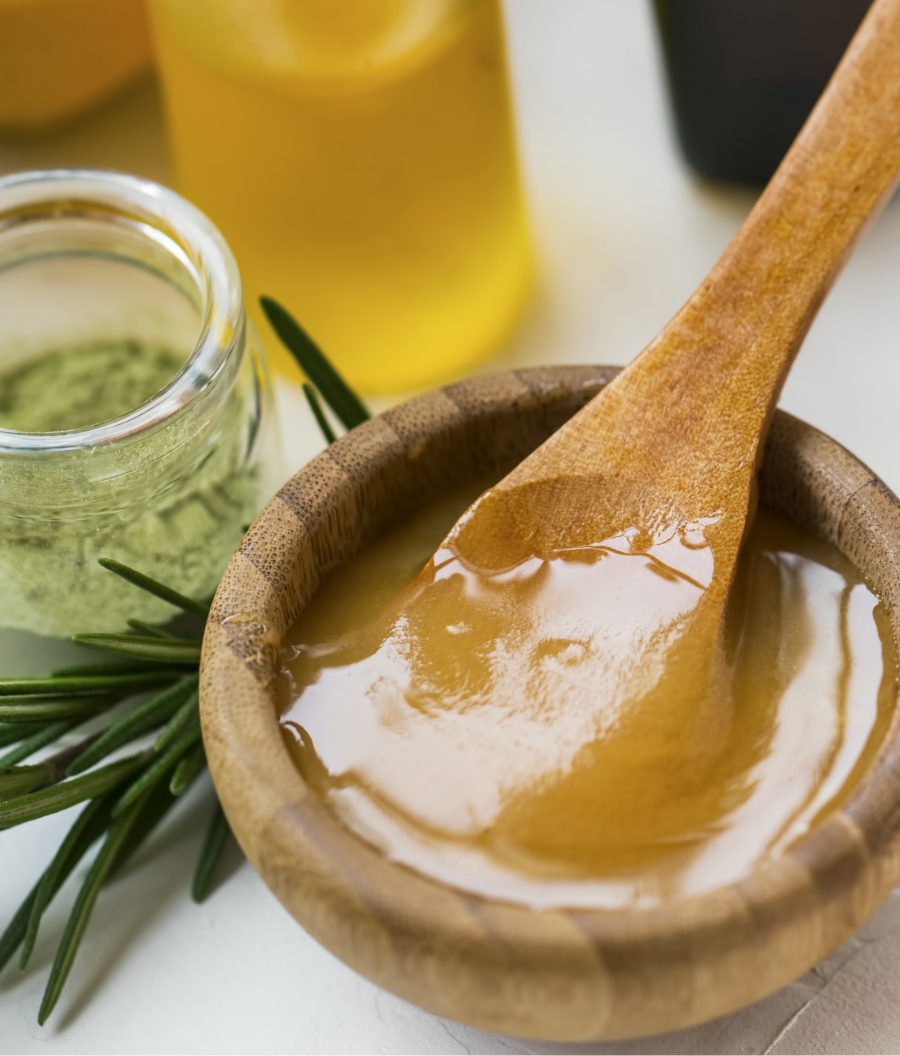



Dull Skin
Dullness occurs when the skin appears dry, patchy, ashy, or lackluster. Several internal and external factors can cause dullness in the skin. Insufficient sleep, external factors like pollution and the sun, dryness and uneven skin texture, and skin aging can create dull skin.
Ingredients with a strong antioxidant content, such as vitamin C, Niacinamide (vitamin B3), ferulic acid and resveratrol are recommended for formulations for dull skin to combat free radical damage that reduces collagen. Hyaluronic acid and glycerin are also ideal for dull skin as they work to retain moisture in the skin.
Best Face Oils for Dull Skin
- Glowcurrant Booster Brightening Facial Oil by Bybi. $16. Formulated with salicin vitamins and fatty acid content, this vegan and cruelty-free facial oil strives to brighten, nourish, and moisturize the skin.
- Ease Up PHA Watery Oil Cleanser by Everyday Humans. $8.50. This multipurpose facial cleanser aims to address sun damage. Designed as an evening cleanser, this product claims to remove SPF, makeup, and impurities while fighting sun damage and providing exfoliation benefits. It contains upcycled fig and ten flower extracts to support the skin barrier and provide skin rejuvenation and brightening.
- Soft glow Facial Oil by Ghost Democracy. $38. This plant-based facial oil seeks to nourish and hydrate with lightweight softening oils for smoother and healthier-looking skin. Non-greasy and quick-absorbing, it contains antioxidants Vitamin A, C, E, and omega-3 and omega-6 fatty acids to calm inflammation, moisturize, and reduce the appearance of fine and dry lines.
Organic vs. Non-Organic Essential Oils
Certain face oils are made primarily from essential oils (a combination of essential oils is sometimes called aromatic oils), while others are made from 100% organic oils.
Organic oils are those that have undergone specific farming or foraging practices that actively aim to preserve the quality of the soil and the end product. Organic oil is, therefore, free from pesticides, chemical fertilizers,and hormones. Extra-virgin, cold-pressed, unrefined organic oils such as olive and coconut oils are preferred for facial oil products over refined versions of these ingredients, as they are unprocessed or untreated, providing higher quality and more effective products.
With natural, clean, and green trends influencing the popularity of vegan-based, cruelty-free, CBD, and “skinmalism” formulations, consumers want products that use environmentally-friendly practices and contain plant-based ingredients.
Essential oils are potent and aromatic liquids that are obtained from plant materials through a process of steam distillation. The category of ingredients can either form as products or mixtures of fragrant substances or include both fragrant and odorless substances. Essential oils, such as peppermint, lavender, tea tree, argan, and lemon oil, are rising in popularity in skincare products.
What are the advantages of essential oils for face oils?
Essential oils can be antibacterial and antifungal to help keep skin healthy. This popular ingredient group can also help moisturize skin, retain its hydration, and reduce inflammation and redness, thanks to their soothing properties.
What are the disadvantages of essential oils for face oils?
There is the potential for adverse effects, including skin irritation and allergic reactions, so consumers with sensitive and/or irritated skin are recommended to avoid them. However, for oily, dry, and even acne-prone skin, essential oils are known to provide hydration, moisturization, and soothing benefits.
Formulators can also diffuse essential oil-based formulations by combining essential oils with a carrier oil (an organic oil), like coconut oil. A carrier oil acts as a neutral base for an essential oil to dilute before applying it to a facial oil product formula.




What are the advantages of organic oils for face oils?
Organic oils are known for their antioxidant, antibacterial and anti-inflammatory properties. They have also been recognized for their ability to provide barrier repair, reduce ultraviolet (UV) damage, and also lessen scarring. Eco-conscious consumers often opt for organic facial oil products.
Organic oils are typically gentler than other oils because they are less processed, making them a better choice for people with sensitive skin. They are also often more absorbent than other oils, making them a good option for people with oily skin.
Typically, organic oils have a higher nutrient content than other oils, which can benefit the skin in terms of its overall skin health, hydration and moisturization, and aesthetic appearance.
What are the disadvantages of organic oils for face oils?
Organic face oils may still pose irritation risks as facial skin is typically more sensitive than other areas of the body. Therefore, selecting and combining ingredients in concentrations that do not pose an irritant risk is vital.
Also, organic face oils may be more expensive than other oils, and they may have a shorter shelf life.
Tips for Formulating Facial Oil Products
- Make your facial oil product specific to your consumers’ skincare type, concerns, and needs.
- Select ingredients rich in efficacious multifunctional benefits to respond to face oil users’ search for hydration and moisture, nourishment, and repair. Consider including vitamins, antioxidants, and non-comedogenic properties.
- Appeal to face oil consumers’ love for products that respond to vegan, cruelty-free, CBD-based, and “skinmalism” trends.
- Consider the sensory profile of your facial oil product, too. Opt for lightweight textures that avoid greasy and thick effects that are slow to absorb and may be uncomfortable on the skin.


Do Face Oils Work?
The efficacy of face oils depends on the individual’s skin type and the ingredients in the oil. Some people claim that face oils work wonders for their skin, while others not so much. That’s why it’s important to make a facial oil specific to your consumers’ skin type and concerns, as the formulation will contain ingredients that target these problem areas and ailments.
When During a Skincare Routine is Face Oil Applied?
Face oil is typically applied after cleanser, toner, and moisturizer as part of a skincare routine.
Encourage consumers to follow the instructions on your facial oil’s product packaging. The general rule of thumb is to apply four to five drops of moisturizer into the palm of the hand and gently pat it onto the skin. If the skin feels too greasy, the face oil has not been completely absorbed.
How Do You Choose The Right Face Oil For Your Skin Type?
Consider the type of oil, the consumers’ skin type, and their skin care goals when choosing a face oil. Skincare oils for the face can also be classified as comedogenic or non-comedogenic.
Comedogenic oils may clog pores and are more likely to cause blackheads and other blemishes. Just because an oil is comedogenic though doesn’t mean it’s automatically bad for the skin—it’s about choosing one based on skin type and concerns. A comedogenic oil can be ideal for consumers with dry skin who do not have acne-prone skin or blackheads.
Non-comedogenic oils give skin breathability, help it stay hydrated, and acne-free—because it doesn’t clog pores. The aim of non-comedogenic oils is to ensure flexibility and elasticity in dry skin and avoid breakouts in oily skin.
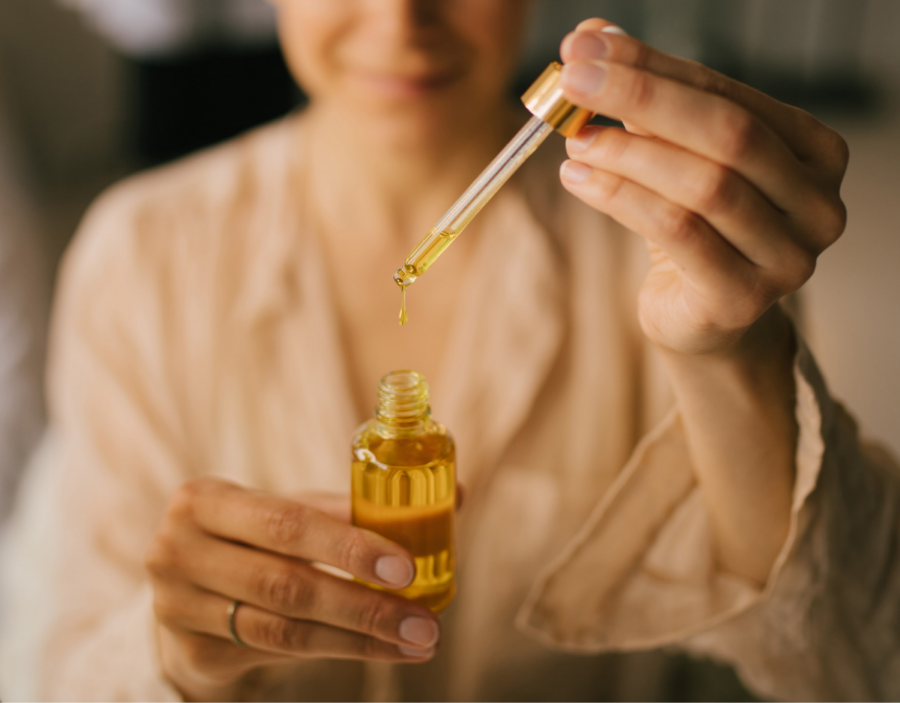

Formulate Facial Oil Products With Us
Shop Ingredients for Facial Oil Products
Looking for organic oils or essential oils for your facial oil formulation? Wanting a vegan and cruelty-free face oil, a CBD-based product, or ingredients that reflect the skinmalism trend?
We’ve got you covered on face oil ingredients, shop BeautyIngredients.com and formulate your next innovation.
Contact Us for Formulation Support
Face oils are an exciting, evolving, and innovative area of skincare. Vegan, cruelty-free, CBD, and skinmalism trends currently dominate the category, with brands producing face oils that reflect consumer demands for environmentally-friendly and health-focused products.
Receive the latest formulation knowledge and guidance, and start creating your very own facial oil product.


For tunnel car wash equipment performance, it's about striking a balance to ensure the vehicle is cleaned best BEFORE the finishing process. Otherwise, it will magnify and preserve the dirt under these protective layers. Since both applications are doing different things with the surface tension, facility owners need to be sure that the second part of the process begins at the right time to make vehicle surfaces more hydrophobic and shed water rather than further spreading it out.
Is it better to go to a car wash or wash at home?
The car wash market has seen steady growth over the past 20 years. International Carwash Association (ICA) research indicates that in 1996, 52.4% of consumers preferred at-home washing rather than going to a car wash. However, in 2014, that number reduced to 28.4%, with growth from 74.6% to over 71.6% of consumers favoring professional vehicle cleaning services. In 2019, it was estimated to be approximately 77%. Rather than washing at home, the benefits of going to a car wash include the following:
- Convenience – Professional car wash facilities, especially tunnel car washes, offer time-saving convenience, which customers value. This includes the frequent adoption of mobile apps for online reservation booking systems to skip waiting lines and mobile payment systems for easy, cashless transactions.
- Affordability – A tunnel car wash averages around $15, depending on the type of specialty services also provided. Basic car washes are just about the same as spending for washing at home when you factor in the cost of soaps, sponges, cloths, buckets, and other necessary materials. However, car washes can provide more thorough cleaning specialties for a relatively low additional expense. Popular add-ons include undercarriage and engine cleaning; adding wax coats; tire cleaning; and interior deodorizing and sanitation. Many tunnel car wash operations offer customers loyalty benefits, including free washes and services for repeat visits.
- Investment protection – Beyond vehicle hygiene, car washes can help sustain a car's value over time. This is especially vital when consumers look to sell or trade in an automobile, and the condition receives appraisal. Regular professional washes and add-on services like clear-coat protection can help guard a vehicle against UV rays, moisture, and various environmental impacts. Other typical road adversities, such as mud, grass clippings, bird droppings, and numerous corrosive types of debris that cause rust and paint fading can also impact the vehicle's overall value.
- Improved fuel efficiency and maintenance – Believe it or not, regularly washed cars help to improve a vehicle's fuel economy. Layers of dirt and grime can potentially decrease airflow across the surface, making it less aerodynamic and increasing drag, which boosts the vehicle's fuel usage. Regular car washes can help save gas and prolong the vehicle's life to keep it on the road longer.
- Easier winter washing – The busiest time for car washes is during the winter when 32% of consumers opt to wash their vehicles (mainly because of the road salt on icy roads). Tunnel car washes provide a quicker, more convenient way to clean the car rather than washing it at home by hand in less than favorable, oft-rigid winter weather conditions.
- Sustainability – It can be more environmentally conscious for consumers to take their vehicles to a tunnel car wash. Newer car wash facilities use water reclamation systems that reuse 90% of the water, so only 9 to 15 gallons of fresh water are used during the entire washing cycle. This is far less water than the estimated 40 to 140 gallons it can take to wash a car at home in a driveway. Additionally, at-home soap products and road debris are deposited directly into the city's water supply through storm drains. Car washes, however, have more wastewater regulation and are generally cleaned better. The sustainable approach is better for business, too. Tunnel washes currently optimizing water usage and green chemicals can reclaim and reuse water for eco-friendliness, and these operations can also turn cars faster on their conveyors.
Resources
References:
Aquabio, Car Wash History: From Simple Beginnings to Modern Day Features: https://aquabio.co/uncategorized/blog/car-wash-history-from-simple-beginnings-to-modern-day-features/
Automatic Vehicle Wash, Tunnel Systems: https://avwequipment.com/equipment-category/tunnel-systems/
Carwash.com, 5 long-lasting benefits of carwashing: https://www.carwash.com/5-long-lasting-benefits-carwashing/
Carwash.com, Going green: Save electricity, water and money: https://www.carwash.com/going-green-save-electricity-water-and-money/
Carwash.com, Lessons in carwash tunnel layout: https://www.carwash.com/lessons-carwash-tunnel-layout/
Detail Pro POS, 20 Car Wash Statistics in 2021 That Will Surprise You: https://www.detailpropos.com/blog/car-wash-statistics/
Focusedcarwash.com, Car Wash Industry Statistics: https://focusedcarwash.com/wp-content/uploads/2017/09/industry-statistics.pdf
How It Works, How does a car wash work?: https://www.howitworksdaily.com/how-does-a-car-wash-work/
JBS Industries, 10 Trends You Should Know About the Car Wash Industry: https://www.jbsindustries.com/blog/10-trends-you-should-know-about-in-the-car-wash-industry/
JBS Industries, Best Car Wash Add-Ons: https://www.jbsindustries.com/blog/car-wash-add-ons/
PSD Codax, Tunnel Car Wash Systems - A Beginner's Guide to Tunnel Car Wash Systems: https://www.psdcodax.com/tunnel-car-wash-systems-a-beginners-guide-to-tunnel-car-wash-systems/
Sunset North Car Wash, Here's What (Tunnel) Car Washes Are Really Doing to Your Car: https://sunsetnorthcarwash.com/2022/11/28/heres-what-tunnel-car-washes-are-really-doing-to-your-car/
Synchrony, 5 Reasons to Visit the Car Wash - and What to Watch Out For: https://www.mysynchrony.com/blog/automotive/5-reasons-to-visit-the-car-washand-what-to-watch-out-for.html
Thompson Sales Company, Wash Your Car Yourself or Take It Somewhere: https://www.thompsonsales.com/wash-your-car-yourself-or-take-it-somewhere/
Tommy's Express, Do clean cars improve gas mileage?: https://tommys-express.com/blog/do-clean-cars-improve-gas-mileage/
Way.com, Tunnel Car Wash - All you need to know: https://www.way.com/blog/tunnel-car-wash-all-you-need-to-know/
Way.com, All you need to know about clean cars and fuel efficiency: https://www.way.com/blog/clean-car-and-fuel-efficiency/
Western Carwash Association, Water Conservation: https://www.wcwa.org/page/WaterConservation





